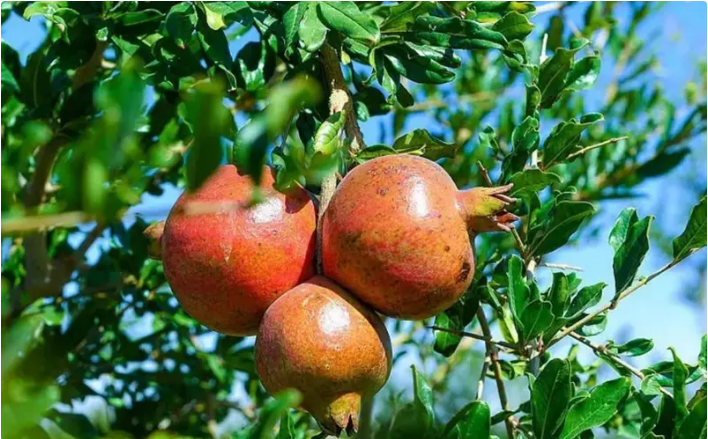Pomegranate is a fruit that belongs to the family Lythraceae and is scientifically known as Punica granatum. It is native to the region of modern-day Iran and has been cultivated for thousands of years in various parts of the world, including the Mediterranean, Middle East, and India. Pomegranates are also grown in some other regions with suitable climates, such as California and Arizona in the United States.

The fruit of the pomegranate is typically round and about the size of an apple. It has a thick, leathery skin that ranges in color from yellowish-red to deep red or purple. Inside the fruit, there are numerous small, juicy seeds surrounded by a translucent, ruby-colored pulp. The seeds, known as arils, are the edible part of the fruit and are often used in culinary preparations.

Pomegranates are renowned for their unique flavor, which is both sweet and tart. They are rich in nutrients and are a good source of vitamins C and K, as well as dietary fiber and antioxidants. Pomegranate juice has gained popularity for its potential health benefits, such as reducing inflammation, improving heart health, and providing antioxidants that may help protect against certain diseases.
In addition to their culinary uses, pomegranates have cultural and symbolic significance in many societies. They have been featured in various mythologies and are associated with fertility, abundance, and prosperity in some cultures. Pomegranate motifs can be found in art, literature, and religious traditions of different regions around the world.

Overall, pomegranates are not only delicious but also offer several potential health benefits, making them a popular and nutritious fruit choice for many people.